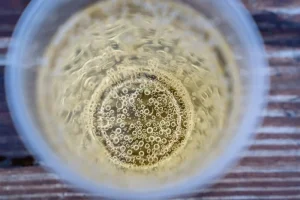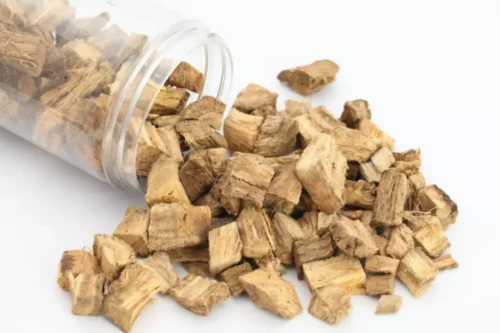
For example, a piña colada has as many as 500 calories per seven-ounce serving. While having a glass or two before bed can definitely relieve the stress of a busy work day and help you fall asleep faster, the quality of sleep is much less. In fact, while the average person gets between minutes of REM sleep (the deep restorative sleep cycle we require), drinking alcohol before bed means getting only 5-10 minutes of REM sleep. Alcohol also increases blood sugar levels which is why most people wake up hungry a few hours later and raid the fridge. Many alcoholic beverages, especially cocktails, contain added sugars and syrups that can further increase calorie intake.
Latest Cocktails
Payment of benefits are subject to all terms, conditions, limitations, and exclusions https://ecosoberhouse.com/ of the member’s contract at time of service. Addiction Resource is an educational platform for sharing and disseminating information about addiction and substance abuse recovery centers. Addiction Resource is not a healthcare provider, nor does it claim to offer sound medical advice to anyone.
Alcohol messes with your metabolism.

While moderate alcohol intake is not considered harmful, heavy drinking may increase your risk of developing liver issues and certain diseases. In comparison, one 12-ounce (355-mL) serving of light beer has around 100 calories, while the same amount of regular beer has closer to 150 calories — and even more if it’s a heavy beer. Meanwhile, a 1.5-ounce (44-mL) shot of vodka will vodka make you gain weight has 97 calories (7, 8, 9). However, added calories aren’t the only aspect of alcoholic drinks that can affect your health. For example, liquors may be lower in calories than some beers but have a higher concentration of alcohol. Many alcoholic drinks, such as wine, beer, and liquor, are made by fermenting natural starches and sugars.
- Medical treatment from licensed providers is provided by the “LifeMD Affiliated P.C.s,” an affiliated network of medical Professional Corporations and Associations.
- Plus, beer won’t spike blood sugar levels in the same way a mixed cocktail like a mojito or a margarita will.
- Other than that, choosing drinks less likely to cause bloating is another option.
- Instead, use low-calorie mixers or add herbs and a kiss of fresh fruit to enhance your drink’s flavor.
Is it possible to lose weight while drinking alcohol?
Having an occasional glass of wine at dinner is said to produce countless benefits — lowering blood pressure, promoting longevity and reducing risks for dementia. Thirty grams of vodka a day is known to lower cholestoral levels which has a positive effect on people with cardio-vascular illnesses. It should be said that the level of alcoholism in Russia was going from high to very high level a few times since the adoption of alcohol drinks. But if you drink heavily like that every night or even multiple times per night, you may find that weight gain sticks around, even when you’re not drinking or recovering from drinking. All of these can lead to long-term weight gain and contribute to the bloating and digestive issues that cause weight gain after a night of drinking. Furthermore, wine provides slightly more calories than most hard liquors and light beers but usually fewer calories than heavy beers.
Eat Before you Drink
Taking in the carbonation leads to gas in the upper digestive system. Vodka is primarily composed of ethanol (alcohol) and water, and its caloric content is derived almost entirely from the alcohol. One gram of alcohol contains approximately 7 calories, which is higher than carbohydrates (4 calories per gram) and protein (4 calories per gram) but lower than fat (9 calories per gram). Alcohol may have various effects on your health that link to weight gain.

Potential Health Benefits of Vodka
- Just create a food in MyFitnessPal you can easily reuse, so you don’t have to do the math every time, just adjust the serving size.
- This can be a confusing and frustrating experience, especially if you’re trying to maintain or lose weight.
- In contrast, light-to-moderate alcohol consumption does not cause weight gain.
- Finally, it’s important to make sure that you’re eating a healthy diet overall.
Discover how drinking green tea may help you lose weight and the other benefits of consuming this beverage. Alcohol can worsen depression by altering brain chemistry and increasing feelings of sadness. This cycle of emotional eating and alcohol use can result in weight gain and other health issues. This imbalance can lead to overeating and cravings for high-calorie foods, contributing to weight gain. Regular alcohol consumption can lead to health conditions that cause weight gain, among other issues.
Alcohol could make you gain water weight overnight, but it will not cause true weight gain overnight. Many people recognize that they feel puffier after a night of heavier drinking, but that will go away once the alcohol leaves your system and you rehydrate. We need vitamins and minerals for essential biological processes like cellular metabolism and regulating inflammatory pathways. Without adequate nutrient status, we can also feel hungrier and crave more foods, leading to increased caloric intake and weight gain. Many who drink alcohol will also retain water the next day, causing your weight to increase.
Tips To Avoid Alcohol-Induced Weight Gain

Alcohol does put the brakes on fat burning while it’s being metabolized by your body 3. But it’s no more likely to contribute to weight gain than excess calories from carbohydrate or fat. Yes, quitting alcohol can lead to weight loss by reducing calorie intake and improving lifestyle choices, such as healthier eating and increased physical activity.
Sugar-Free Drinks Linked to Weight Loss and Lower Diabetes Risk
Unfortunately, alcohol is quite calorie-dense, providing seven calories per gram. A single glass of wine or a pint of beer can contain 150–250 calories and cocktails are often the worst culprit due to sugary mixers and syrups. If you go overboard, you risk a hangover and the fatigue, headache and other characteristic symptoms. Fatigue is also Sober living house a trigger for poor food choices and giving into cravings. Eating a greasy breakfast to cure a hangover is a myth, but many people do it anyway and end up consuming hundreds of extra calories. Then, after dragging yourself through the day, you’re going to feel a lot more like hitting the couch than hitting the gym.

.jpg)
.jpg)





